
Music
The unemployed businesswoman Elke in Golzow, the geriatric nurse Karin in Wuppertal, the first teacher of the class, Marlies Teike, and Gudrun, the former mayor of Genschmar, as well as their father, the long-time LPG chairman of Golzow. In the fourth part of the irrevocably last film about the children of Golzow: the agricultural machine fitters Bernhard and Eckhard and Dr. Manfred Großkopf, managing director of the Landwirtschafts-GmbH Golzow, which emerged from the LPG. His epilogue recalls once again a reunion of some of the former pupils at the kindergarten's Buddelkasten on the eve of the 1st anniversary of German reunification. Accompanied by a song from the Golzow school, which wants to call itself "School of the Children of Golzow" in the future, the camera leaves the village and reaches the Oder River with aerial shots, which flows through the wide plain of the fracture towards the sea.

Music
The first two parts of the 19th film are about five former pupils. Two of them already made themselves known through the "CVs" of 1980: Ilona, the electronics worker and later youth functionary in Frankfurt (Oder), and Winfried, the graduate engineer for electronic device construction, who was then also commander of the combat group of his company, the Gröditz (Saxony) pulp mill, and now lives temporarily unemployed in Augsburg. In addition to Ilona and Winfried, who were politically active, the new film portrays Jürgen, Petra and Christian. Their cinematic lives are shorter, because the documentarians had long lost track of them. Now, over 50 years old, Jürgen, initially trained as a painter and upholsterer and now a transport and warehouse worker in Manschnow (Oderbruch), and Christian, an agricultural machinery fitter and now an in-house technician at the Kreditanstalt für Wiederaufbau in Berlin, were willing to be filmed once again.

Music
Bernhard Oestreich, called Bernd, son of one of the leaders of the Golzow LPG, did not stay in the countryside, but also turned down the opportunity to graduate from high school in order to study. He should have become a professional soldier. Married with two daughters, Bernd went into big industry, became a laborer and is still as needed today as a foreman at Raffinerie AG Schwedt (Oder) as he once was at VEB Petrolchemisches Kombinat in the days of the GDR. Much has changed in his life, but what has remained is the work in three shifts.

Music
About the son of an agricultural functionary who helped enforce the socialist order in Philadelphia in Brandenburg, then in Golzow (Oderbruch) and finally in Bernau near Berlin. Jochen therefore went to school in Golzow for only one year. He became a milker, was a border guard, married and lives with three children in Bernau. Just as disappointed with the GDR as he was with its fall, today he is even with all politics.

Music
The portrait of someone who came into the class as a dropout and, as far as travel is concerned, later went the farthest of all. The career of a carpenter, enterprising go-getter and incorrigible optimist who always made the best of the changing situations in his life.

Music
The tragic story of a fun-loving schoolgirl who was the first in her class to become a mother at seventeen, remained unmarried for a long time, worked as a poultry farmer and died of heart failure at the age of 29. It is also the story of her son, who after his apprenticeship in Golzow was unable to find work as a factory fitter and who is also the father of a disabled child.

Music
The different life paths of former girlfriends from Catholic and Protestant homes respectively - one a draftswoman, the other a chemical laboratory technician - in two interrelated films, in which love, like the demands and attitudes to life in the change of its foundations in the process of the decline of the GDR and its accession to the Federal Republic of Germany, play a special role.

Music
The different life paths of former girlfriends from Catholic and Protestant homes respectively - one a draftswoman, the other a chemical laboratory technician - in two interrelated films, in which love, like the demands and attitudes to life in the change of its foundations in the process of the decline of the GDR and its accession to the Federal Republic of Germany, play a special role.

Music
Subsequent discovery of one of the students from the class, to whom in "Curricula vitae" was not yet dedicated a portrait sketch. What the smallest in the class knew how to make of himself. Why the agricultural machinist and father of two sons from his first marriage is called uncle by his third son.

Music
The first life story of one of the "children of Golzow", continued beyond the "Wende" as an independent feature-length film, which tells of the career of the first hero of our first film, using the rich material available from Jürgen, who became a painter and upholsterer, and "his" Golzow, where he still lived at the time.

Music
The first cinematic review after the fall of the Wall and the end of the GDR. In the context of a reunion of the "children of Golzow" on the 1st anniversary of German unity and their joint trip to Hamburg also a workshop report documenting the thirty-year history of the Golzow Chronicle from the new German situation as well as the thoughts and feelings, hopes, fears and objective changes in the lives of now already 13 portrayed.

Music

Original Music Composer
Three people from very different walks of life meet at a large construction site. Young, unmarried, self-confident construction manager Linda Hinrichs dedicates herself completely to her work and enjoys living more independently then most women. Daniel, a student works on the construction site to make money during his summer holiday, and impresses Linda with his spontaneous energy and idealism. Brigadier Böwe, an older, divorced man works his way from one construction site to the other and has lost his own personal happiness on the path to developing what was seen as officially suitable social standards. Both men try to win Linda over, not realizing that they are taking her freedom away from her.

Music

Music

Music
For five years Rogelio, a Chilean exile, has been in the GDR, where he works as a lighting technician at a theater. Though his colleagues try to make him feel welcome, he feels lonely and isolated.

Music
After 35 years of military service, Officer Jürgen Drost takes on the job of mayor in the small village where he lived with his mother after World War II. The transition to civilian life comes as more of a shock than he expected, causing him to rethink many aspects of his life.

Music
Around the festival week for the 675th anniversary of Golzow for GDR television a portrait of the village, its landscape and agriculture in the past and present. In sketches also the parents' generation and the current state of affairs in the lives of some of our "children of Golzow".

Music
Maja Wegner is in her late thirties and a single mother of a teenage daughter. To give her stale life a new direction, she decides to start all over again in the big city. She sells her house in the countryside, quits her job, and moves with her daughter to Berlin. There, she finds a job as a conductor for the railroad company. Although Maja soon finds new friends in her apartment building, the search for a new life partner does not come off so easily.

Music

Music
Some villages are torn down because of open cast mining south of Leipzig. The landscape changes and so do the lives of the people. The four years chronicle - an allegory of the loss of homeland, the destruction of nature in the name of progress and prosperity. Sadness and melancholy remain. Environmental protection, one of the difficult issues in the GDR.

Music
Film by Bernhard Stephan.

Music
A sequence of nine individual biographical sketches with a prologue and epilogue on Golzow and the long-term observation. Deepening of the preceding chronicle. The Golzow people in the present, from which retrospective views of the previous life and the life conflicts of the individual are given.

Music
35-year old ballet soloist Peter ends his career as a performance dancer and, on the occasion of his last stage performance, looks back on his career and his life. Peter′s retrospection is centred on the relationship with his professional and romantic partner Lotte, who he had once met at a joint performance. Peter remembers the landmarks of their love: their marriage, their child, and Lotte′s severe illness that threatened to end her career. In flashbacks, the film shows how the couple survived this crisis by working sacrificially to return to the stage and celebrate international success.

Music
The fun-loving, 26-year-old architect Franziska Linkerhand (Simone Frost) works for a famous professor. Yet, she feels restrained by her dependence on him and longs to take risks. When her marriage falls apart, she moves to a small town for a fresh start. Franziska approaches her new life with vigor and idealism. Many of her colleagues have given in to the dictates of economic restrictions and prefabricated apartment blocks; but Franziska hangs onto her ideals and, as in her private life, is not willing to compromise…

Music
Agathopulus loves his luxurious life. He does not want to be bothered with helping to rebuild a destroyed city. Instead, he invents machines and rationalizes the work flow. Although he is celebrated as a hero against his will, he has to escape.

Music
In 1903, Jan Anskath and his half-brother Martin are living in Rajgorod at the border between Russia and Prussia – Jan on the Russian, Martin on the Prussian side. Both are occasionally smuggling stuff over the border. But while Jan acts from political conviction and is smuggling illegal writings over the border, Martin is only interested in the money. That is why he does not question his shadowy client when he sneaks out refugees into Russia. But then it becomes evident that the distinguished gentleman has robbed the refugees from all of their belongings, only to turn them over to the authorities of the Czar.

Music
The first summarizing film about the path of the class and the common stations in life. But also about the different paths in the profession, in love, marriage and family. As well as a soldier. A group chronicle, viewed from the historical distance of the 35th year of the end of the 2nd World War and after 18 years of shooting in peace, which ensured everyone the first human right: they were allowed to live.

Music
Last years in the Life of german Dramatican Georg Büchner. Around the year 1830 he and his fellow students try to initiate a revolution in Germany, but they are not successful. Büchner has to leave the country and seeks exile in France and Switzerland, where he falls ill with typhus.

Music
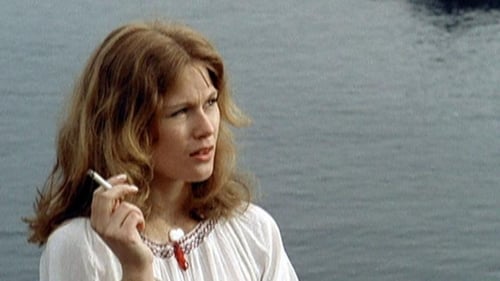
Original Music Composer
A group of tourists from the GDR spend their holiday at the coast of Bulgaria. When making a trip to a small fisher house, they have to stay they night, because the ship's motor broke down. One of the group proposes a game: Someone has to be a corpse, one the detective and another one the murderer. But shortly after starting the game the "corpse" has vanished only to befound at the foot of the nearby cliff - being dead for real. Now the group start their investigation...

Music
Documentary short about the construction of the Markersbach Pumped Storage Power Plant in East Germany.

Music
The little African girl Asina is eagerly waiting for her new friend Karli. Karli is a young sailor from Rostock who has promised her a gift on his next arrival in Coccatuttibana. Karli keeps his promise and smuggles a stowaway onboard the “MS Wismar”. Kasimir, a snowman, finds shelter in a cooling chamber. Although the journey turns out to be turbulent, Karli and Kasimir manage to arrive in Africa in good health.

Original Music Composer

Music
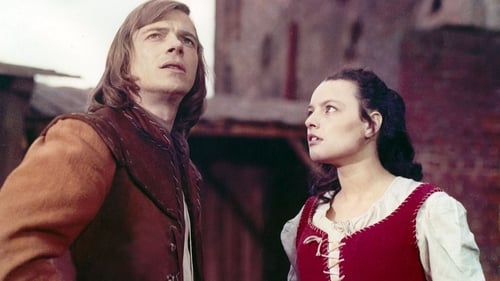
Music
Hans the farmer is drawn into war as a soldier. Returning from the front, having been defrauded of his pay by his own king, he makes his way home. On his trip, he encounters a witch who asks him to fetch the light from a spring. He keeps it when the witch tries to deceive him and he discovers her foul magic. When the light is ignited, a little man appears who must serve the owner of the light, but it only has power if the owner has faith in himself. His courage bolstered, Hans goes to the king once more to demand his wages be paid.

Music
A class reunion of the twenty-somethings in the old school. What one remembers, what the individual has new to tell. One of them: Marieluise. Her love, her work, her demands on herself and the world into which she is coming of age.

Music
For thirty years, Karl Achilles has been working at the chemical collective in Bitterfeld. But now his last day as a master at the plant has come. He is about to retire; even if Karl, who finds ending his working life difficult, wanted to stay on, it would not be possible. Karl’s colleagues have arranged a farewell dinner for the retiring master at an outdoor restaurant. But on his last day of work, before the farewell dinner, he meets all sorts of people: both colleagues and people, who do not work at the plant. A mosaic of the biography of a person who found fulfilment in his work and now has to look for the meaning of his life anew.

Music
Film by Bernhard Stephan.

Music
Europe, 1620: The well-known astronomer and mathematician Johannes Kepler, who teaches as a professor in Linz, receives the message that his mother is prosecuted as a witch in Württemberg. The truth behind the allegations is rather simple: His mother has been denunciated by a former friend after an argument with the authorities. Kepler tries desperately to convince the prosecutors of the absurdity of their allegations with rational arguments.

Music
How young people were manipulated to join the war during the Imperial Era.

Music
Uwe Polzin, a highly talented biologist publicly stands the defence of his doctorate and this crucial day prompts him to look back on his life so far. These reminiscences are not altogether positive and he and his family still face almost unsolvable problems. For; while Ruth, Uwe's sister, consciously goes without family life and private happiness in order to devote herself fully to her vocation as a doctor; he tries to reconcile career and family. He has found in Alla, his wife - an interpreter - not only a truly loving partner but also someone who shares his basic view of life. Still, their marriage is undergoing a crisis. Uwe's job has become so demanding that he expects her to cope with a great deal of domestic problems. Alla senses that her husband is exploiting her love towards him and that he expects her only to make sacrifices for him. This is why she is contemplating divorce.

Music
Leontes, king of Sicily, tries to convince his friend Polyxenes, king of Bohemia, to stay longer as his guest. But only Hermione, Leontes' wife, can talk Polyxenes into not leaving. Leontes gets suspicious. Is his wife having an affair with his friend? Leontes tries to find out about it...
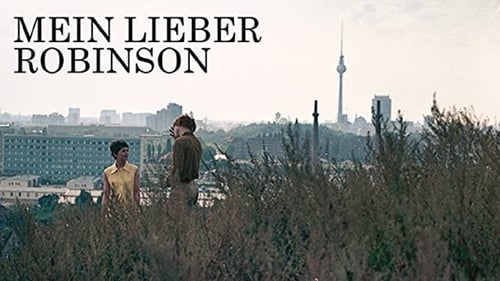
Music
19-year old Peter is working to gain practical experience for his planned medical studies. But his life turns into confusion as he unexpectedly comes a father.

Music
The story of a young, idealistic doctor and his on-the-job training as a rookie surgeon. Dr. Heiner Sommer moves to a small town in the GDR where he will complete his training under the senior physician, also named Dr. Sommer.

Music

Music

Music
In an act of friendship and solidarity between two mining towns in 1929, the locals of Kriwoj Rog, Russia, give their flag as a gift to the locals of Bergstedt, Germany. This quickly takes on a symbolic meaning for the miners in Bergstedt as the Nazi party demands that this Soviet gesture be erased and the flag be replaced with their own. The miner and communist party functionary Otto Brosowski (Erwin Geschonneck) publicly declares it his duty to defend this flag against every danger, and he keeps his promise despite his family being threatened by torment and torture.

Music
Presentation of a commited State Party secretary at the Chemicals Combine in Buna. A former miner and small farmer rises to a leading political position.

Music
The 18-year-old Katharina Jens is a high diving champion and succeeds in everything she does. When she enters an international contest in place of her team colleague Claudia, expectations are accordingly high. However, when she misses the one-and-a-half somersault with a double twist her team fails to gain victory. Suddenly, the question arises if she is in fact good enough.

Music

Music
The age group in a group portrait of the fifth grade. They make suggestions for filming at school, in their free time and at home. Growing challenges through the lessons that bring knowledge and new questions and broaden their horizons.
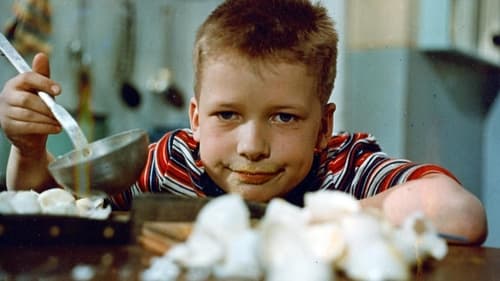
Music
Alfons is very unlucky boy. Even when he intends well everything is going wrong, so his life is full of various mishaps.
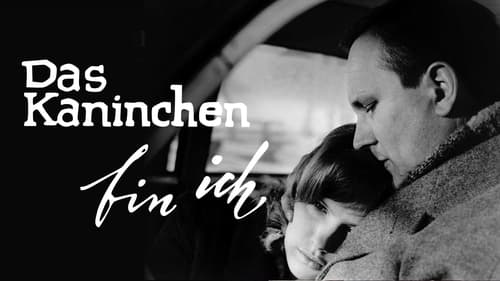
Music
The Rabbit Is Me was made in 1965 to encourage discussion of the democratization of East German society. In it, a young student has an affair with a judge who once sentenced her brother for political reasons; she eventually confronts him with his opportunism and hypocrisy. It is a sardonic portrayal of the German Democratic Republic's judicial system and its social implications. The film was banned by officials as an anti-socialist, pessimistic and revisionist attack on the state. It henceforth lent its name to all the banned films of 1965, which became known as the "Rabbit Films." After its release in 1990, The Rabbit Is Me earned critical praise as one of the most important and courageous works ever made in East Germany. It was screened at The Museum of Modern Art in 2005 as part of the film series Rebels with a Cause: The Cinema of East Germany.

Music
Summertime in Prerow at the Baltic Sea. A cheerful film with the spirit of the sixties.

Music

Music
По роману О. Готше "Наш маленький трубач" о жизни талантливого немецкого музыканта Фрица Вайнеке, нелегким путем пришедшего в лагерь германского пролетариата и пожертвовавшего жизнью за дело рабочих в 1926 году.

Music

Music
A fantasy story about the young boy Lutz who is looking, with two friends, for a missing magical bird.

Original Music Composer
Ibrahim Shaddad’s graduation film Jagdpartie (1964), which he shot at the Deutsche Hochschule für Filmkunst Potsdam-Babelsberg (now: Filmuniversität Babelsberg KONRAD WOLF), is a treatise on racism. Shot in a forest in Brandenburg, it uses a Western look to portray the hunt for a Black man.

Music

Music
A cinematic visit to the Pergamon Museum in Berlin. The camera usually observes the visitors and paints their views on scenes of the ensemble of figures. The amazement at the beauty and grace of the antique sculptures is reflected in the faces of the viewers and emotion is palpable. The visitors come from all over the world - one sees Indians, Asians, Blacks. All age groups are represented, from children to old people. They come individually or in groups and communicate about what they see. The film gets along without any comment. You see more pictures of the visitors than of the altar. This means that it is important for the film to show the cultural interest of the people. Gerhard Rosenfeld creates atmospheric music with a classical feel to it. An early and extremely interesting work by the great documentary filmmaker Jürgen Böttcher.

Music
Böttchers film showcases three young workers who learn how to paint, draw, and make sculptures out of stone. The film generated a storm of mistrust, as there is no leading communist party, and the three individuals live blithely and independently of the official dictates. It became one of the first DEFA documentary productions that were not allowed to be shown.

Music
Böttcher made his graduation film about young people who had become delinquent in a youth work yard in Thuringia. Already here a striking feature of his later films becomes apparent: Jürgen Böttcher gives his protagonists a lot of space; he approaches them without prejudice, empathetically and carefully. In addition, his curiosity can be felt in the life situations and stories of his characters.














































